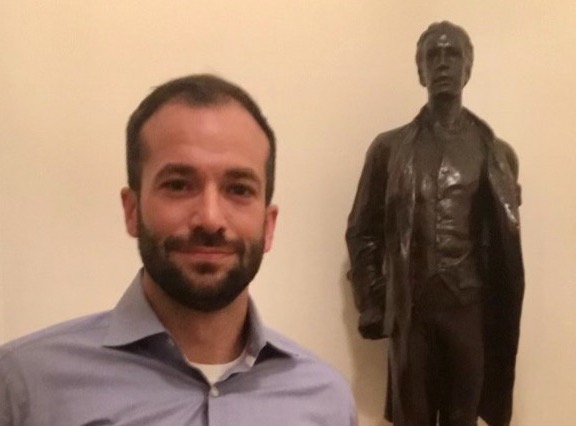America's first traitor
- Jeff Rogg

- Dec 6, 2020
- 3 min read
Updated: Dec 6, 2020
While Benedict Arnold might be the most well-known traitor of the Revolutionary War, perhaps the most dangerous one was America's first traitor, Dr. Benjamin Church. Church was born in Newport, Rhode Island, where I am currently located. Newport has more cool connections to American spies, so stay tuned for that, but back to Benjamin Church.
Church's family roots in America went all the way back to the Mayflower. Church went to Harvard and became a doctor. He actually treated some of the victims of the Boston Massacre! Soon he was an active member of the growing revolutionary movement. But Church was also a spy for the British. As a member of the Mechanics, the secret group that met at the Green Dragon Tavern, Church reported the proceedings back to General Gage, the British commander. So, Church was the person responsible for setting off the events that led to Lexington and Concord. His betrayal could have resulted in the arrest and execution of the revolution's leadership, but luckily that never happened. The Mechanics had their own spies among the British, so they knew there was a leak, but they didn't know who the traitor was.
After the outbreak of the war, Church was made the Director General and Chief Physician of the Continental Army, the origins of the position we know today as the Surgeon General. He continued to pass intelligence to Gage and the British in letters that were written in code. Church's luck ran out when he tried to pass a letter to the British through his mistress. Church's mistress handed the letter off to a baker in Newport, and eventually the letter found its way to George Washington himself--not the person Church intended at all!
Church was arrested and tried, but avoided the death penalty on the simple technicality that the American shadow government had not created a law to deal with spies. So, one result of Church's treason was that the Continental Congress passed a law on November 7, 1775 that punished spying with death. That same day, the Continental Congress also passed a resolution to keep Church in prison and prevent him from writing letters or speaking to anyone just in case he tried to send any more information to the British. So, America was slowly and painfully learning all the ins and outs--and ups and downs--of intelligence.
Another legacy from Church that continued to haunt America was how easy it could be to get people to betray their country. Church was in debt, so he spied for the British in exchange for money. Future spies like Aldrich Ames from the CIA and Robert Hanssen from the FBI also sold America's secrets for money. To prevent this problem, the American intelligence community carefully looks at an individual's finances and debt as part of the screening for a security clearance. Of course, debt is only one reason that people spy. Pride is also another, and a problem we will discuss when we come to Benedict Arnold.
As for Church, the American government eventually released him after he got sick in jail. He went to Boston and then was banished from Massachusetts along with other suspected pro-British loyalists in 1778. He left America on a ship bound for the Caribbean that apparently sank at sea. In later years, the mysterious death of a traitor would usually be the grounds for conspiracy theories that it was a covert act of revenge. Russia has targeted former spies and traitors in recent years with high-profile killings, even in the heart of London.
So, Benjamin Church provided many hard lessons to America about intelligence. America also had its first real spy villain. It now needed a spy hero. The next post will talk about perhaps the most famous spy of the Revolutionary War and more hard lessons America needed to learn about intelligence.

Source: https://commons.wikimedia.org/wiki/File:Benjamin_Church.jpg




Comments